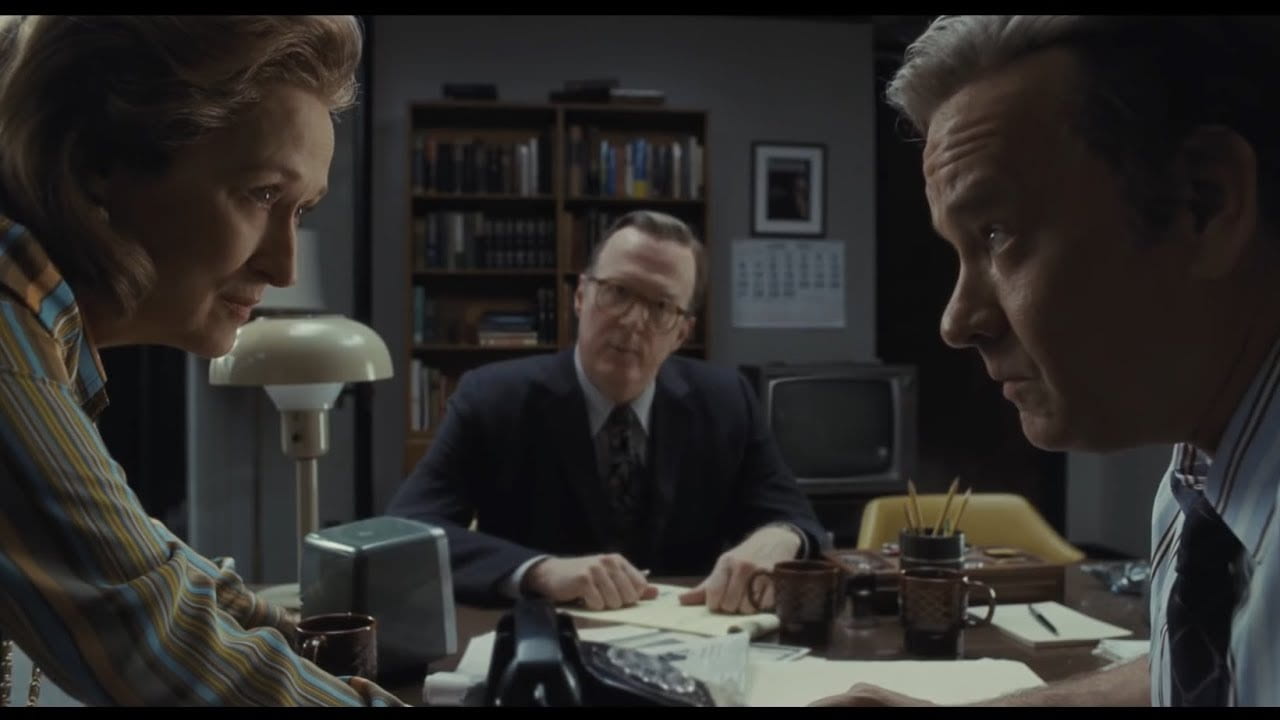David Perez
Central Bureau Chief
The acclaimed director Steven Spielberg delivers in “The Post” a fascinating thriller telling the story behind the publishing of the Pentagon Papers, which revealed that the American government has been lying to the public about the Vietnam War.
The film starts in Vietnam in 1965 with Daniel Ellsberg, a military analyst, surveying the current situation of the war.
There is a brief skirmish in the night, although we never see the Viet Cong attacking, which may suggest that they are not the villains here.
On the plane returning home, he tells his superiors that the status has not changed, thus they conclude that the war is going worse.
Years later, Ellsberg steals highly-classified documents from the Department of Defense about the Vietnam War and leaks them to The New York Times.
These leaked documents expose many government lies about Vietnam going back to the Truman administration and cause a massive shock in the public.
Then the story is divided between the two main characters. On one hand, there is Katharine Graham (Meryl Streep) the owner of The Washington Post who tries to get her newspaper ahead.
The other one is the Post editor-in-chief Ben Bradlee (Tom Hanks), who gets interested in the leaked Pentagon Papers.
The story of Graham narrates her struggle for balancing her duties as the owner of the Post and her own social life.
It also portrays another struggle, her struggle as a woman in a men’s world.
This can be seen many times when she enters a meeting room and she finds the room full of men eager to discuss with her, to which she tries to remain stoic. Streep gives wonderful acting in that sense.
Bradlee’s part, on the other hand, depicts a man struggling against power. When the Times publish the Pentagon Papers, he gets angry that they weren’t the ones doing it.
When the Post gets a hold of a copy of the Papers from the same source the Times did, Bradlee is eager to publish it but the newspaper gets discouraged when President Nixon takes the Times to court.
At that point, the two stories converge with the Post journalists being indecisive about whether they should publish the Papers or not. Graham finds herself in a dilemma, because she is the one who can authorize the story or not.
If she does, her newspaper may find itself in trouble but if she doesn’t, the Post will miss a golden opportunity to rise to relevance.
The Post makes a wonderful use of colors to set up a dark tone, with fluorescent-bulb white being dominant. The weather is almost always cloudy.
This mood is helped by the music score composed by Spielberg’s longtime collaborator, John Williams, which combines orchestral symphonic music with some electronic influences.
The movie sends a powerful message in support of the free press and the First Amendment, especially in a final scene where the Post journalists enter the Supreme Court being hailed as heroes by protestors.
Something relevant is the role of then-President Richard Nixon, who is undoubtedly, the villain of the movie.
He always appears backwards talking on the phone from the White House gardens and we never see his face at all.
This portrays Nixon not as a public servant, but as a cold politician detached from his people.
The Post is an amazing thriller with excellent acting and pace that keeps the viewer heedful to what is happening next.
Sometimes it may get a little dull and boring for some people.
It’s a political thriller after all, with no action scenes at all. Nevertheless, it’s a wonderful movie with a very necessary message defending the First Amendment and a free press more than ever.
